In 2024, a rewilding education programme saw more than 400 students from Spain’s Iberian Highlands learn more about Tauros and nature recovery in their local landscape. The highly engaging programme proved so successful it will be scaled up next year.
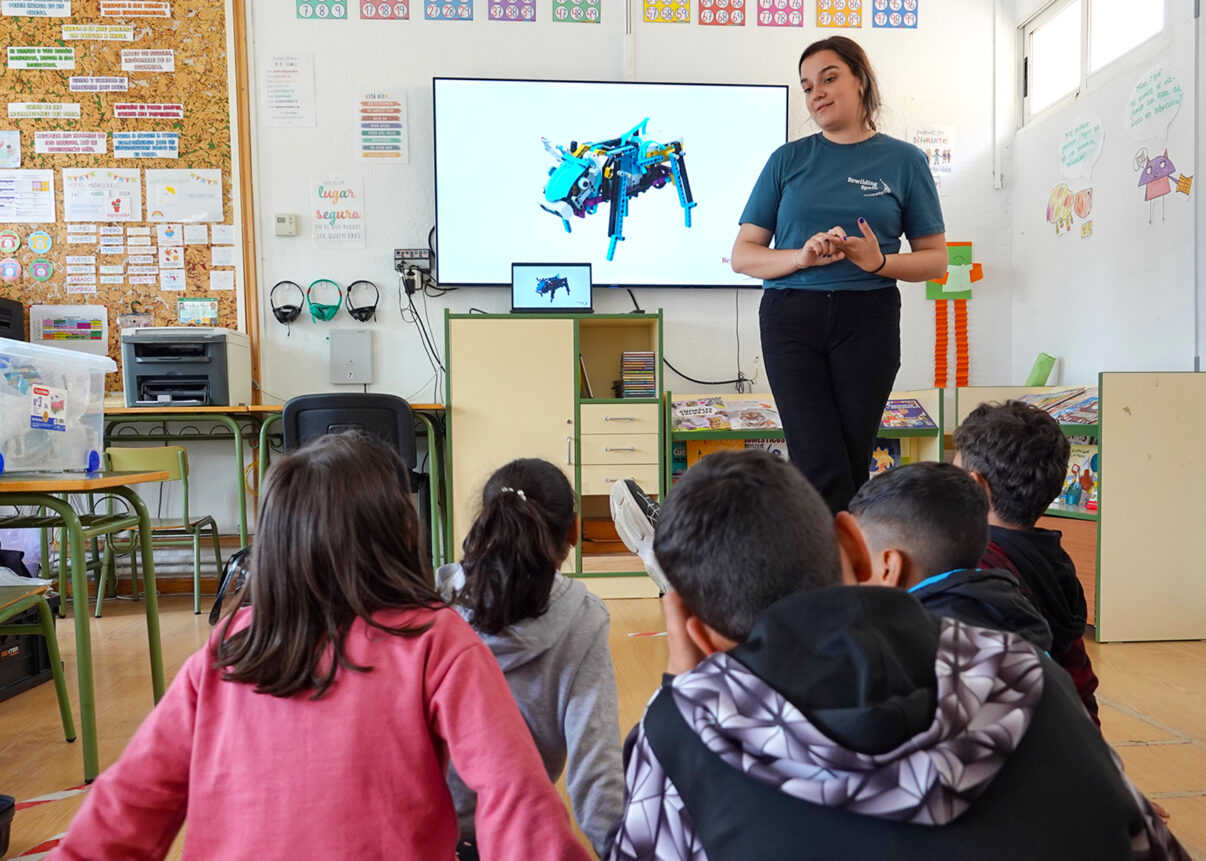
Forging deeper connections with nature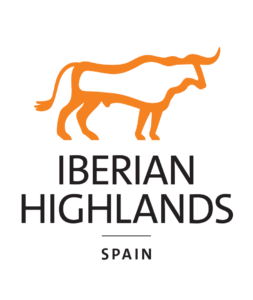
Inspiring and enabling young people to join the burgeoning rewilding movement is critical for the future health of the planet. Connecting children with nature is not only beneficial for their health and development, but can help to create a generation of eco-conscious individuals who value and understand the importance of preserving and restoring natural habitats, and who want to engage in nature recovery. Building engagement with people of all ages is a central component of all rewilding efforts.
To encourage and enable children to form deeper connections with the amazing wild nature on their doorstep – and to educate them about rewilding and its benefits – the ‘Rewilding Educa’ programme kicked off in the Iberian Highlands rewilding landscape in Spain at the beginning of this year. Overseen by members of the Rewilding Spain team, and in partnership with local NGO the Micorriza Association, the programme saw over 400 students from primary and secondary schools in the Iberian Highlands enjoy field visits and classroom activities focused on the role of Tauros and other large herbivores in rewilding and nature recovery.
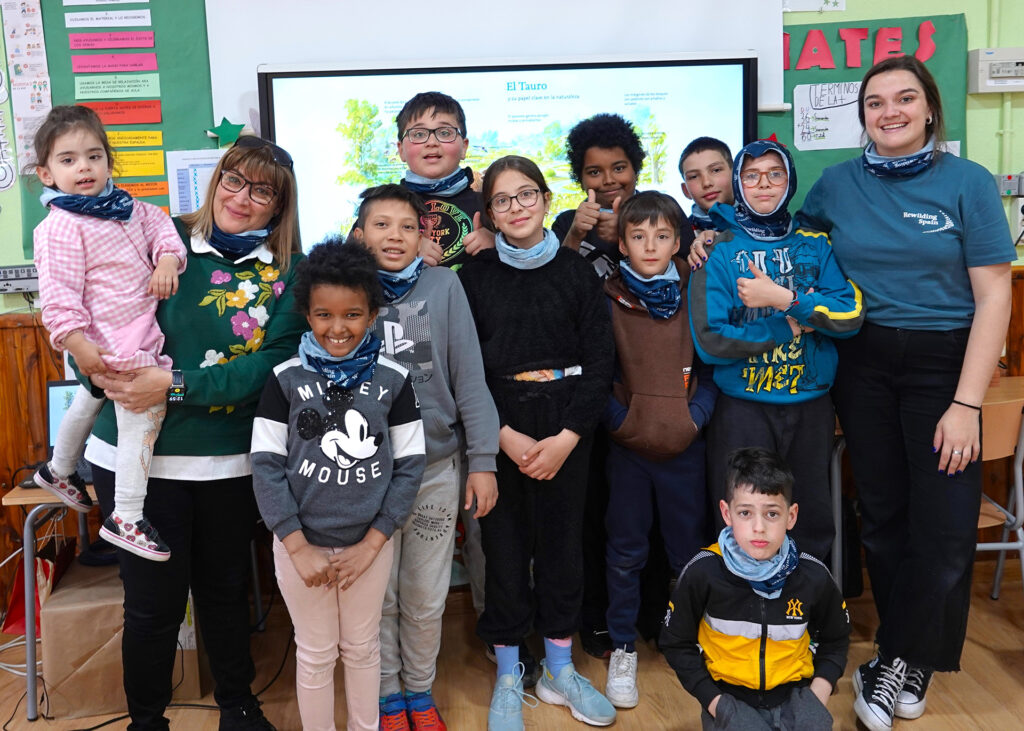
The Tauros in focus
Grazelands Rewilding, formerly known as the Taurus Foundation, initiated the Tauros Programme in 2008, aiming to develop a modern equivalent of the extinct aurochs through selective breeding. As the focal species of the programme, the Tauros is not a species, but a mix of bovine breeds selected to produce a resilient animal that is well adapted to living in the wild. Through their natural grazing, these iconic, hugely impressive animals help to enhance biodiversity and lower the risk of catastrophic wildfire outbreaks, while their presence in the landscape can also support nature-based economic development.
To date, the Rewilding Spain team have released two herds of Tauros in the Iberian Highlands – one of these is located in Frías de Albarracín in the province of Teruel, and the other in Mazarete in the province of Guadalajara. These are the first Tauros herd to arrive in Spain. Through the Rewilding Educa programme, students in the Iberian Highlands had the opportunity to see these eye-catching herbivores and witness their impact first-hand.
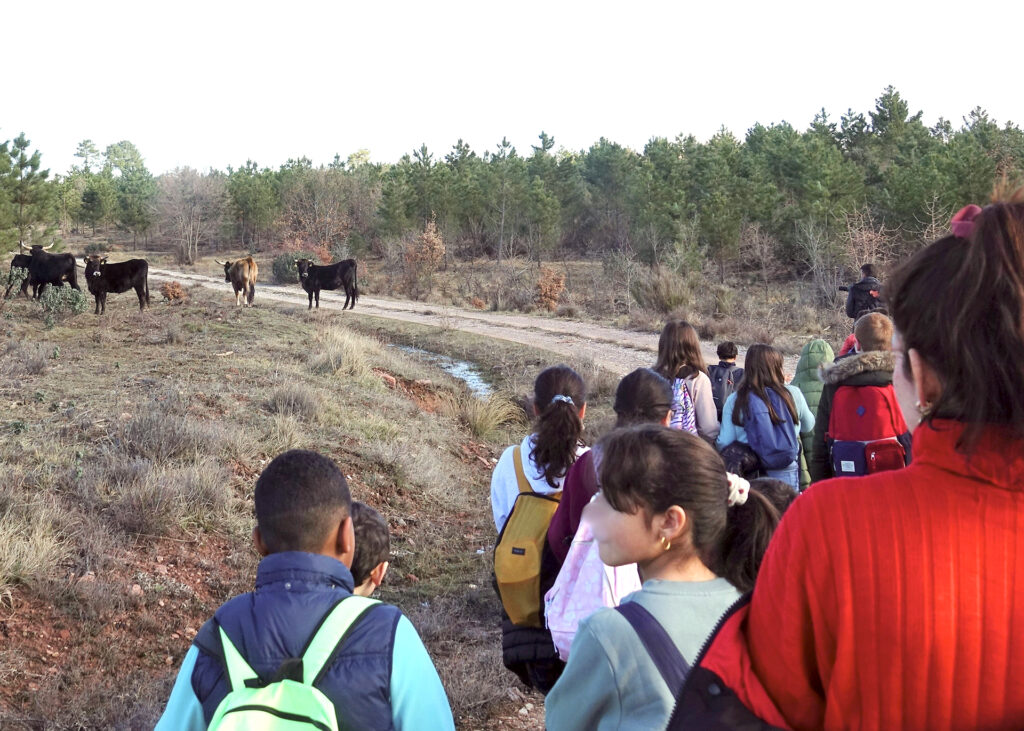
An engaging mix of activities
Field visits to see the Tauros were carried out with the Micorriza Association, an organisation which brings together young professionals from the landscape and works to conserve natural and cultural heritage of the Iberian Highlands. During these visits, students explored the landscape while engaging in hands-on and interactive activities to learn about natural processes and concepts such as wildfires, food webs, and the importance of enhancing wild nature.
These trips to the field were complemented by classroom workshops, that blended rewilding education with robotics and technology. Students participated in coding lessons and developed technological skills that allowed them to recreate the habitat and behaviour of the Tauros using robots built with Lego pieces. This innovative approach sparked curiosity and connected students with nature in a modern and creative way, demonstrating that technology can support a deeper understanding of ecological processes.
“These classroom activities were really interesting and everybody had fun,” said one of the teachers from a local school in Sierra Ministra. “The students learned a lot about robotics and became even more aware of the importance of wildlife and nature recovery.”
This dynamic combination of outdoor exploration and classroom innovation ensured students gained a holistic and memorable understanding of rewilding and its benefits. A closing event of the 2024 Rewilding Educa programme saw more than 300 students and teachers gather together in October in Molina de Aragón.
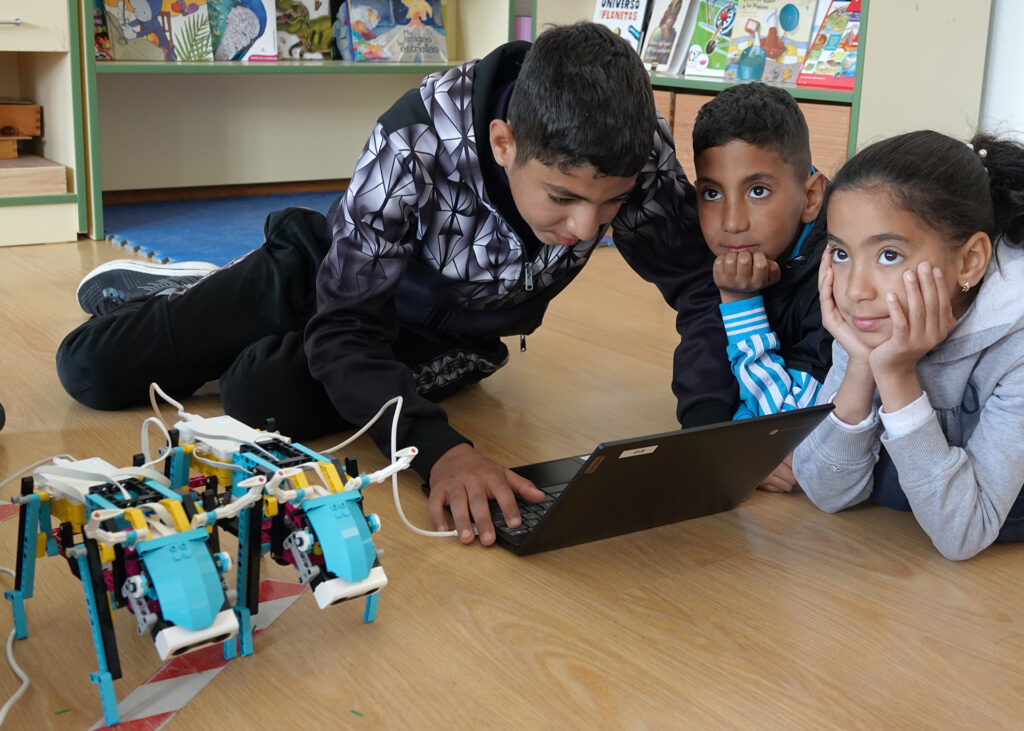
Scaling up
Following the first successful year of the Rewilding Educa programme, the Rewilding Spain team are already looking to the future. In 2025, the programme will be expanded beyond the Alto Tajo and Sierra de Albarracín areas to include the Serranía de Cuenca region too, with local partners again involved in trips to the field. The Micorriza Association will repeat their collaboration in the Alto Tajo region, while Parque de Fauna La Maleza and Stipa & Azeral will come on board to lead visits in Sierra de Albarracín and Serranía de Cuenca areas.
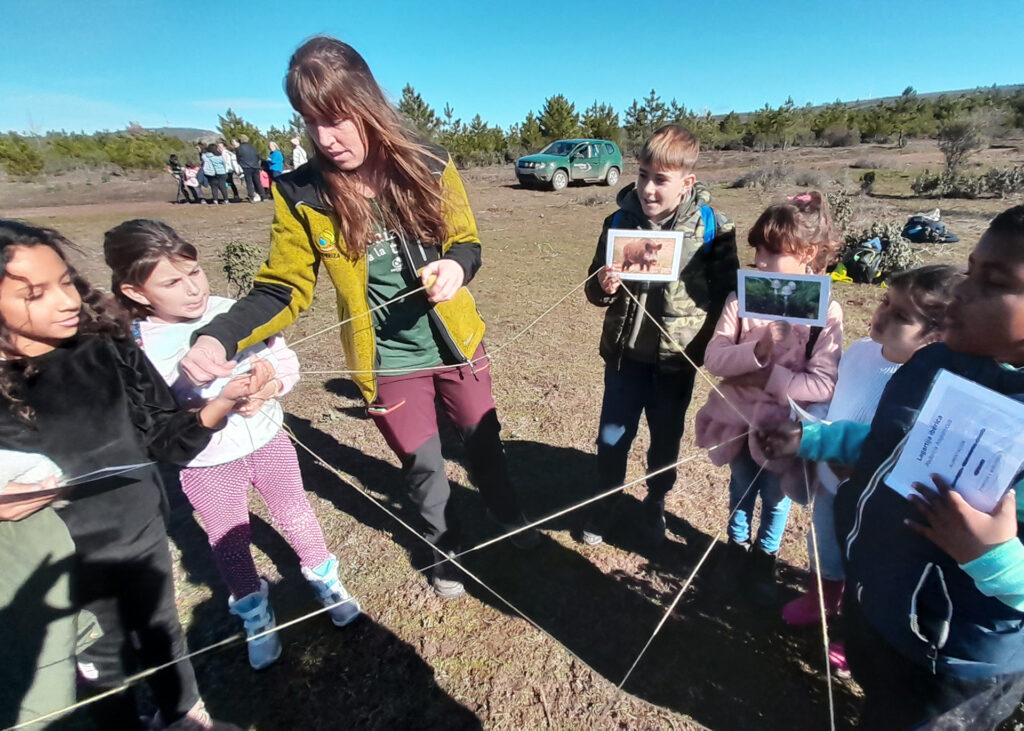
Invaluable support
Rewilding Europe’s work in our rewilding landscapes is supported by a wide range of highly valued partners. We would particularly like to acknowledge those providing core funding – notably the Ecological Restoration Fund, the Dutch Postcode Lottery, WWF-Netherlands, and Arcadia. Their longstanding support plays a critical role in enabling us to deliver and scale up rewilding impact.
This programme was also made possible by the invaluable contributions of private donors, whose support has been instrumental in creating innovative educational experiences. These experiences not only inspire the next generation of rewilders but also strengthen the connection between local communities and the landscapes they live in.
